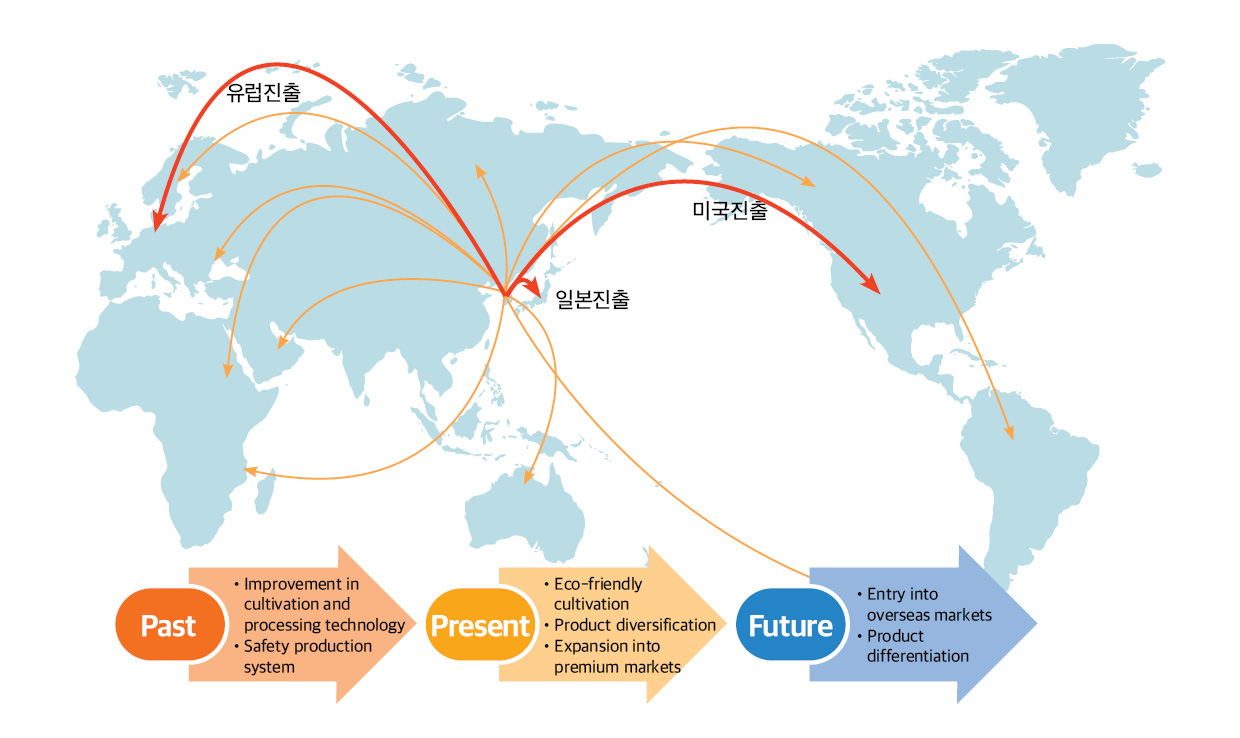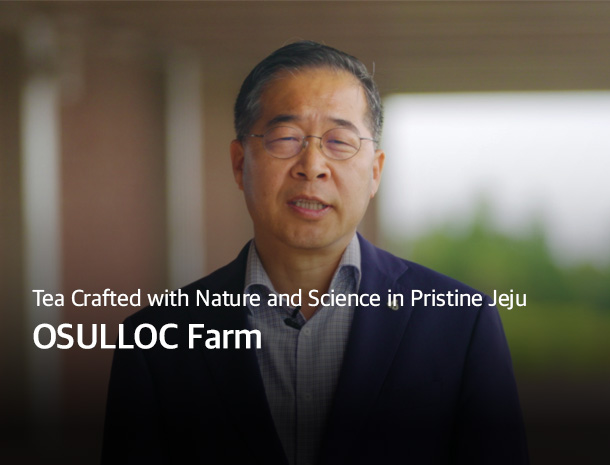Industry Trends
- Home
- Jeju Life
- Industry Trends
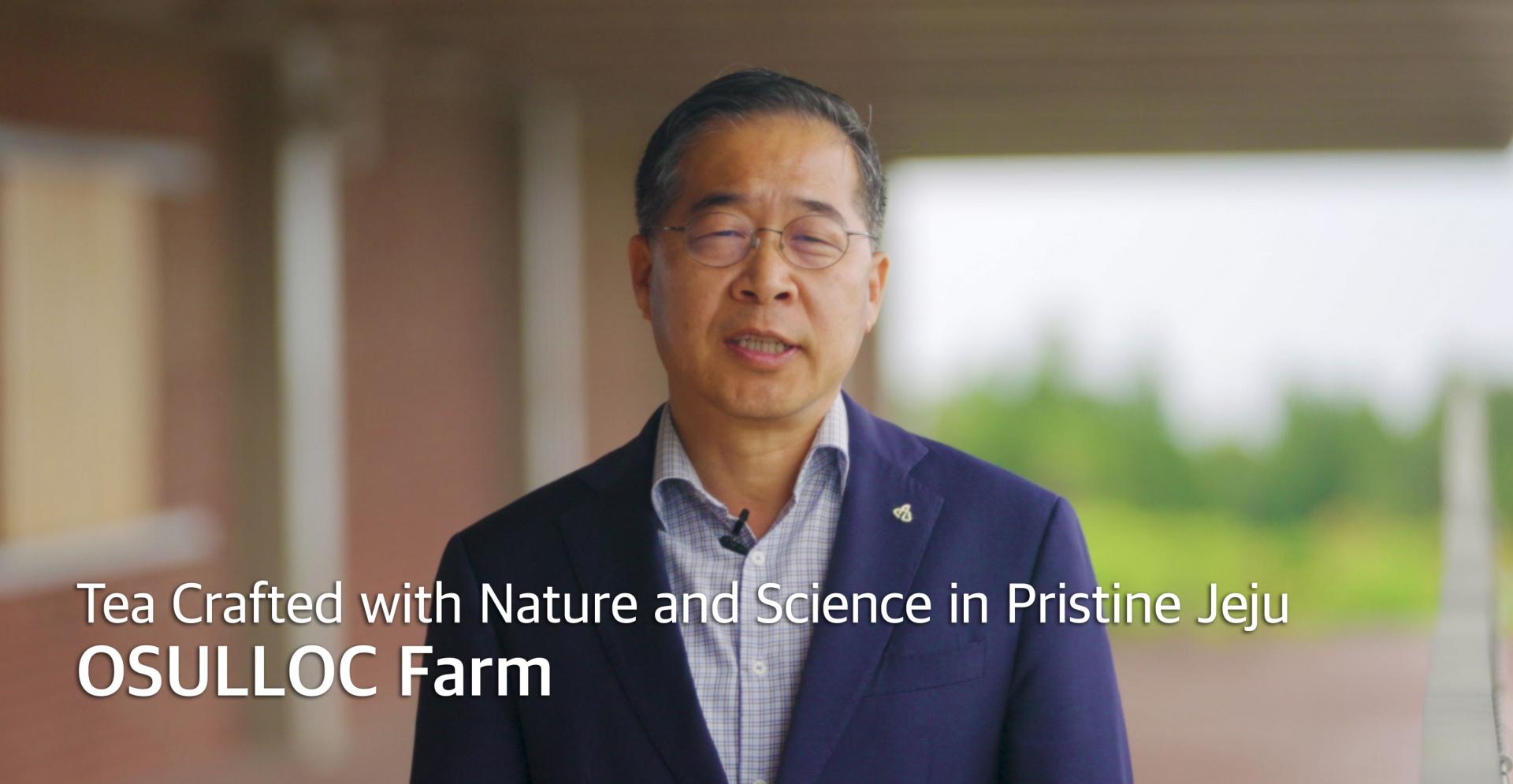
"OSULLOC Farm is a subsidiary of the Amorepacific Group and a local enterprise located in Seogwipo, Jeju. Our team of 80 employees, from both the mainland and Jeju, is dedicated to tea cultivation and food and beverage research and development. We also engage in B2B business, supplying tea to food companies and exporting it overseas. Annually, the farm produces 800 tons of tea raw materials and 8.6 million finished products. Since winning the Jeju Export Award in 2013, we have been exporting over KRW 1 billion worth of products annually to more than 10 countries in Europe, North America, and beyond, building a global reputation for 'Made in Jeju' tea. By leveraging Jeju's pure and clean image, we aim to increase exports of high-value-added products and enhance the value of the Jeju tea brand."
Lee Jin-ho, CEO of OSULLOC
|
OSULLOC Farm, Korea's Premier Green Tea Producer in Jeju |
Everyone knows that Amorepacific, Korea’s leading cosmetics company, is engaged in the green tea business through OSULLOC. Still, few are aware that they also operate "OSULLOC Farm," where green tea is cultivated as a raw material. For over 40 years, OSULLOC Farm has led Korea’s tea industry and strived to popularize and disseminate tea culture. The farm accounts for 15% of Korea’s tea cultivation area and 25% of the country’s tea production. Given its limitless potential, it plays a vital role in Jeju’s green tea farming and serves as a critical source of future added value for the group. Focused on tea farming and sales, OSULLOC Farm is based on the pristine island of Jeju and is diligently working to expand its reach globally.
Q Your business began by establishing tea fields in Dosun and Seogwang on Jeju Island in the 1980s. What was the reason for setting up tea fields in Jeju?
To be precise, we began cultivating tea fields in Jeju as early as 1979. The founder of Amorepacific Group, Suh Sung-whan, had a vision to revive Korea's diminishing tea culture, share its beauty with the public, and contribute to consumer health. Tea plants, which are subtropical and deep-rooted, require ample rainfall, warm temperatures, suitable soil organic matter, and good aeration and drainage— all conditions that Jeju ideally provides. As the saying goes, "cultivating the most suitable crops in the most suitable places," the finest products come from ideal growing conditions. That's why Jeju tangerines are so delicious. Specifically, we harvest the first flush of tea around April during the misty "gosari" (bracken fern) monsoon season, when amino acids are abundant, and the leaves remain tender, resulting in exceptionally high-quality tea.
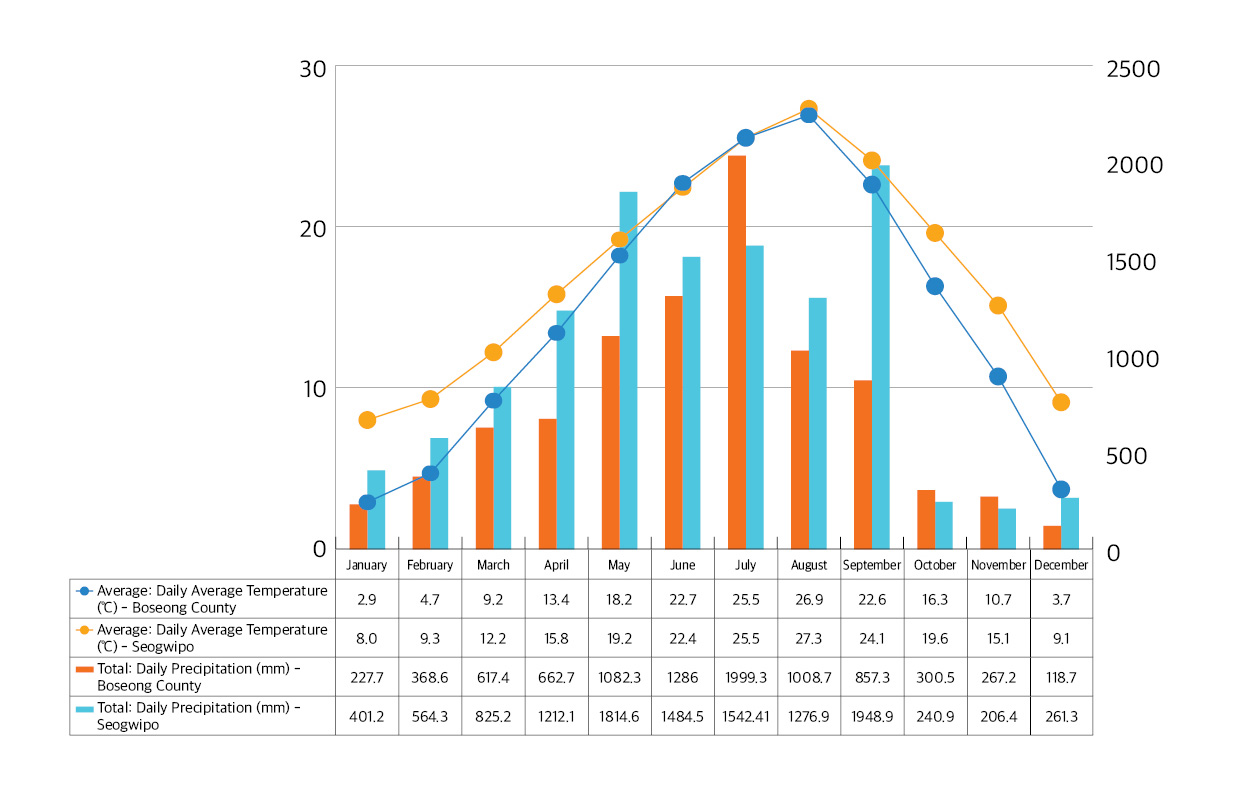
Q What were the background and reasons behind relocating your headquarters to Jeju in 2007?
Before moving our headquarters to Jeju, OSULLOC Farm was known as Jangwon Industry Co., Ltd., which was involved in various businesses, including tea, sports, and real estate leasing. To clarify the company’s identity and direction, we decided to focus solely on the tea business and moved our headquarters to Jeju, where our tea fields are located. In 2016, we also relocated our research center from Yongin to Jeju to strengthen our expertise as a tea company and make Jeju the hub of Korea's tea industry. Furthermore, we aimed to contribute to the local community's development and economy. Chairman Seo Kyung-bae’s deep affection for Jeju also influenced this decision (laughs).
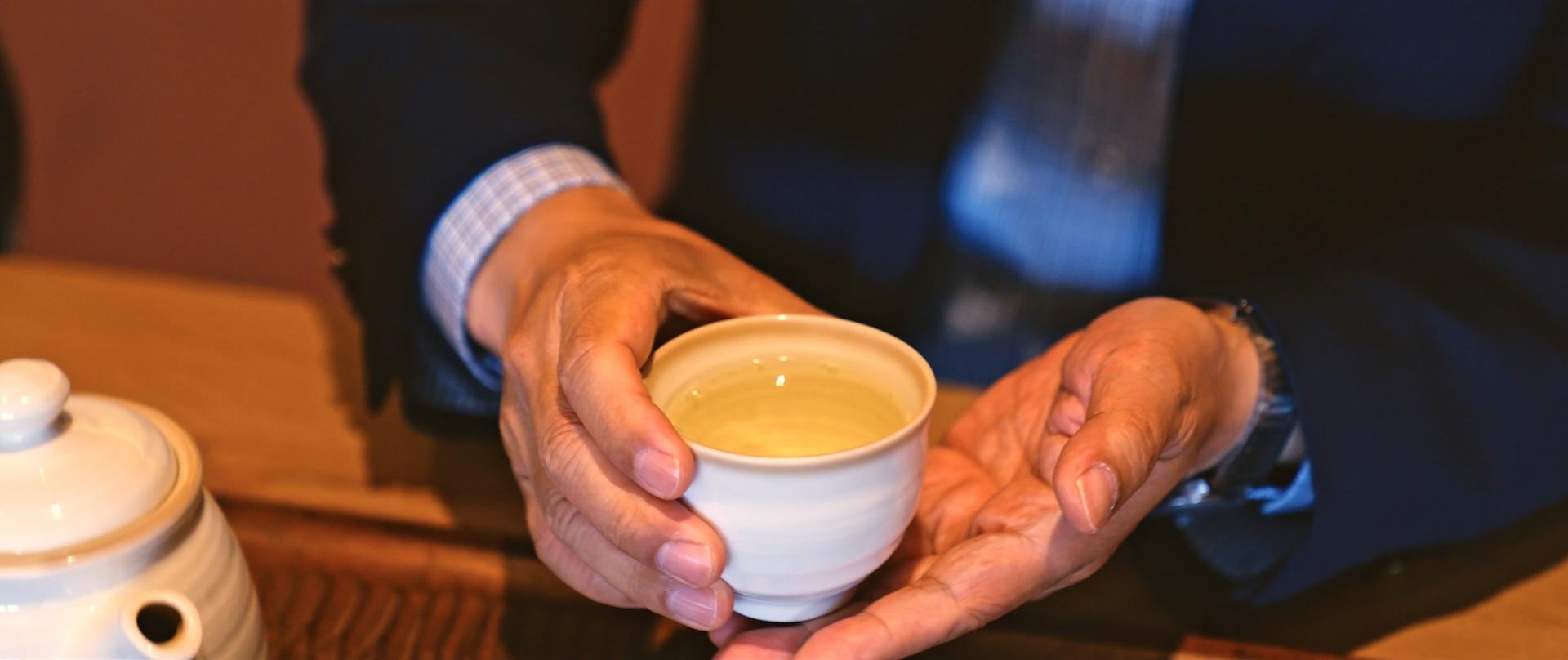
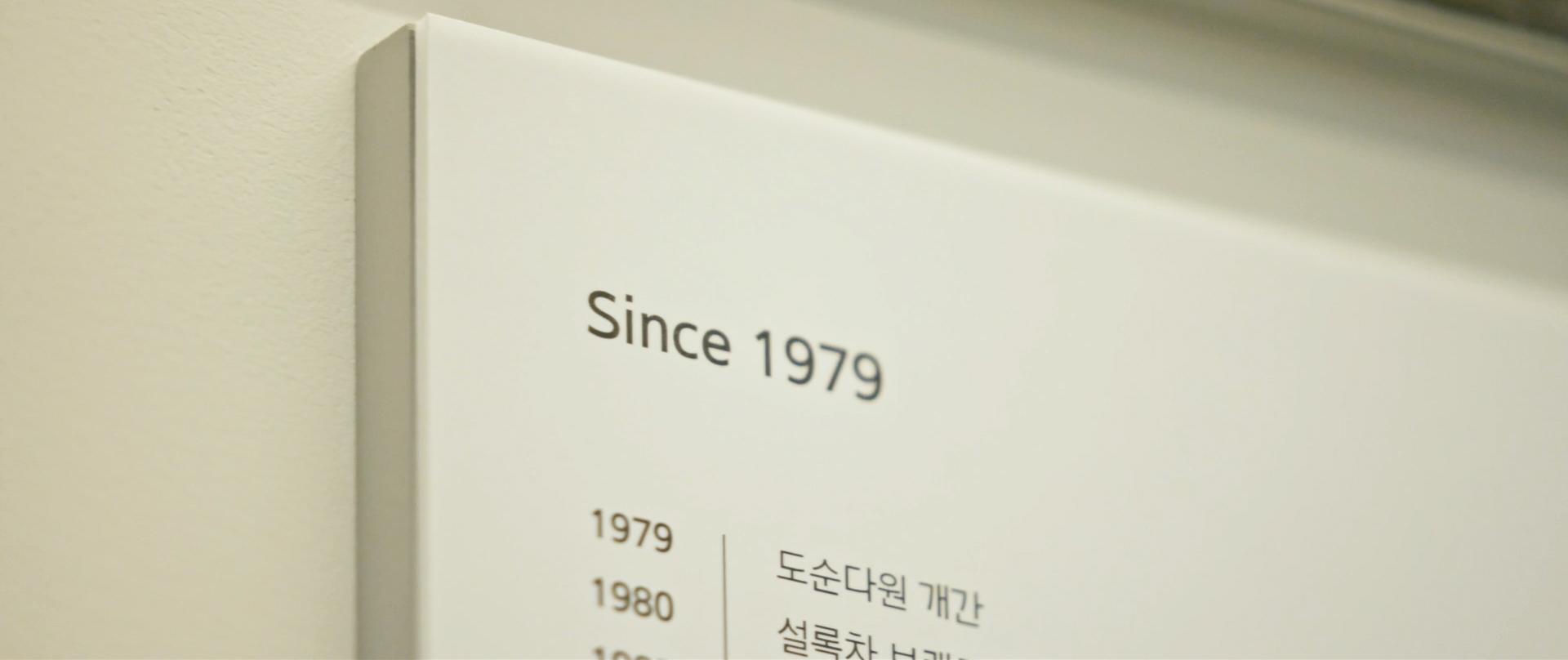
Q In October 2021, you signed an investment agreement (MOU) with Jeju Special Self-Governing Province for a new tea field factory in Hannam, Jeju. What are the expected benefits of being designated as an investment promotion zone?
First and foremost, we express our sincere gratitude to the Jeju Provincial Government for their generous support. While we have received various economic benefits, the collaboration and interest from Jeju Special Self-Governing Province have made the establishment of the factory even more valuable. Through this initiative, we have created high-quality jobs and generated significant economic impacts. This includes an annual revenue of over KRW 5 billion for Jeju-based suppliers involved in the tea industry.
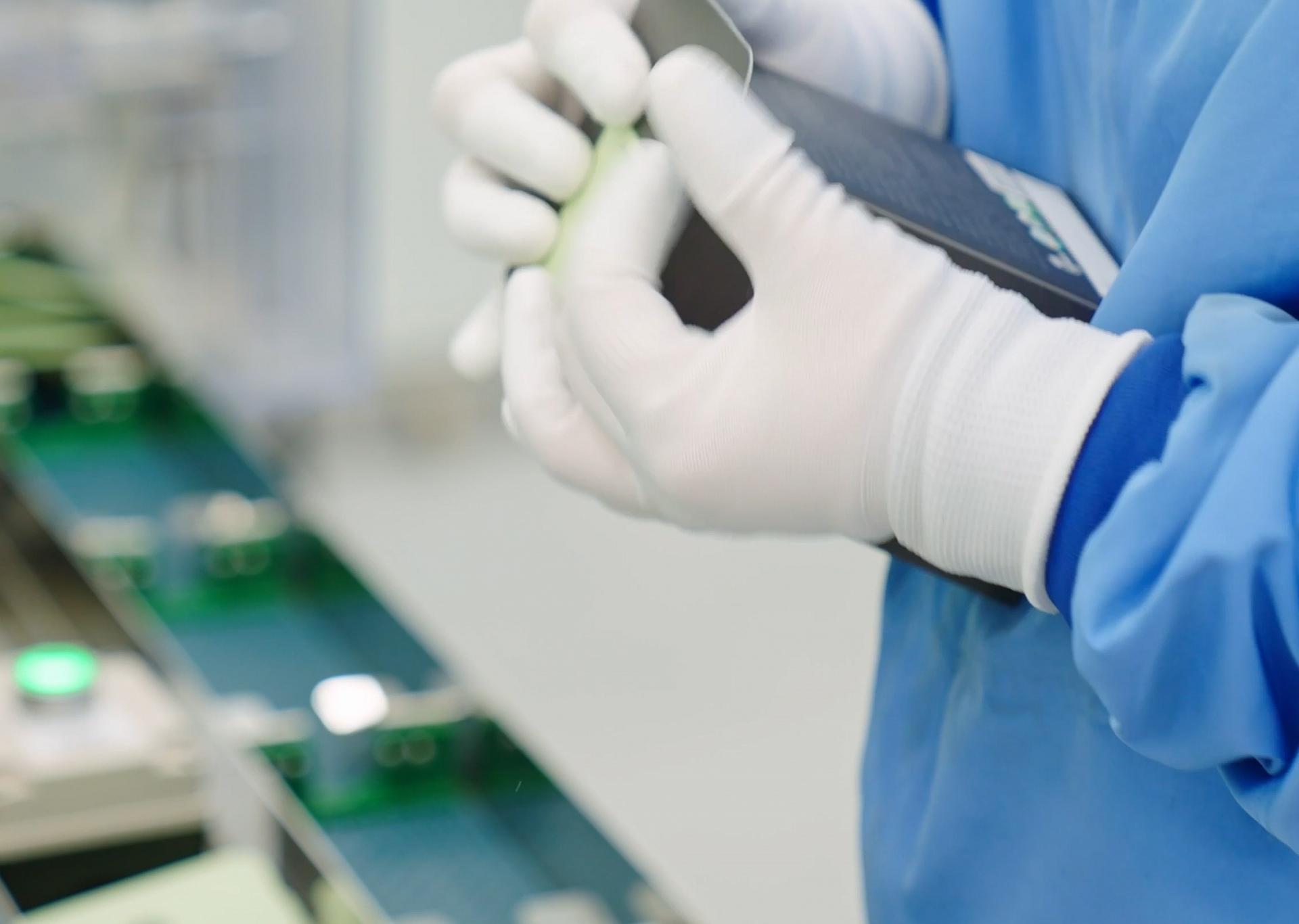
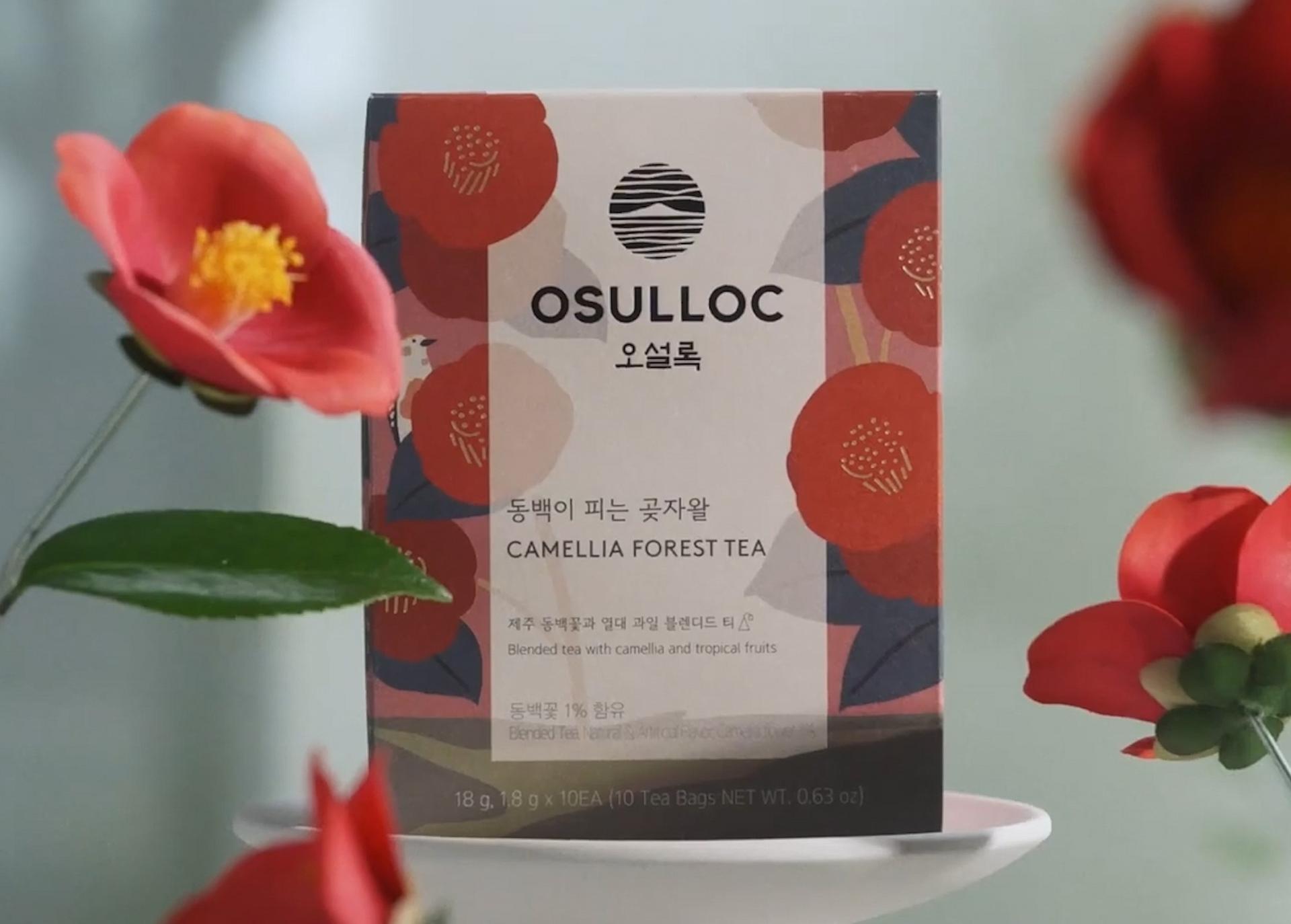
Q For "Made in Jeju" green tea, you carry out the primary processing of the tea leaves at OSULLOC Farm in Jeju.
After cultivating the tea leaves, we conduct light primary processing, followed by roasting and blending in the secondary processing stage. Previously, this secondary processing was carried out at the Amorepacific tea factory in Jincheon, North Chungcheong Province. Despite using tea leaves grown in Jeju, we could not label it as "Made in Jeju." Therefore, to enhance the efficiency of our production value chain and fully convey the value of Jeju tea, we relocated the secondary processing factory from Jincheon to Jeju in October 2023. Currently, the entire process, from raw material production to finished product packaging, is undertaken at the OSULLOC Tea Factory, consolidating all infrastructure in Jeju. Additionally, the factory offers a customer experience where consumers can witness the tea production and processing firsthand, creating a closer connection to our products.
|
Tea Cultivated in Harmony with Nature and Enhanced by Science and Technology |
Q You have implemented a one-stop production system that packages organically grown tea leaves without using water during processing.
Typically, water is not used in tea processing. Therefore, our tea factory, which operates without generating wastewater, is an eco-friendly facility ideally suited for Jeju's precious natural environment, where water is a valuable resource. Our practices naturally align with the principles of ESG management. It's rare for a single company to do everything from tea cultivation to primary and secondary processing, distribution, and sales. This integrated approach ensures consistent product quality and enables us to reflect customer demands in our products. Ultimately, we deliver premium-quality tea and the esteemed value of our brand.
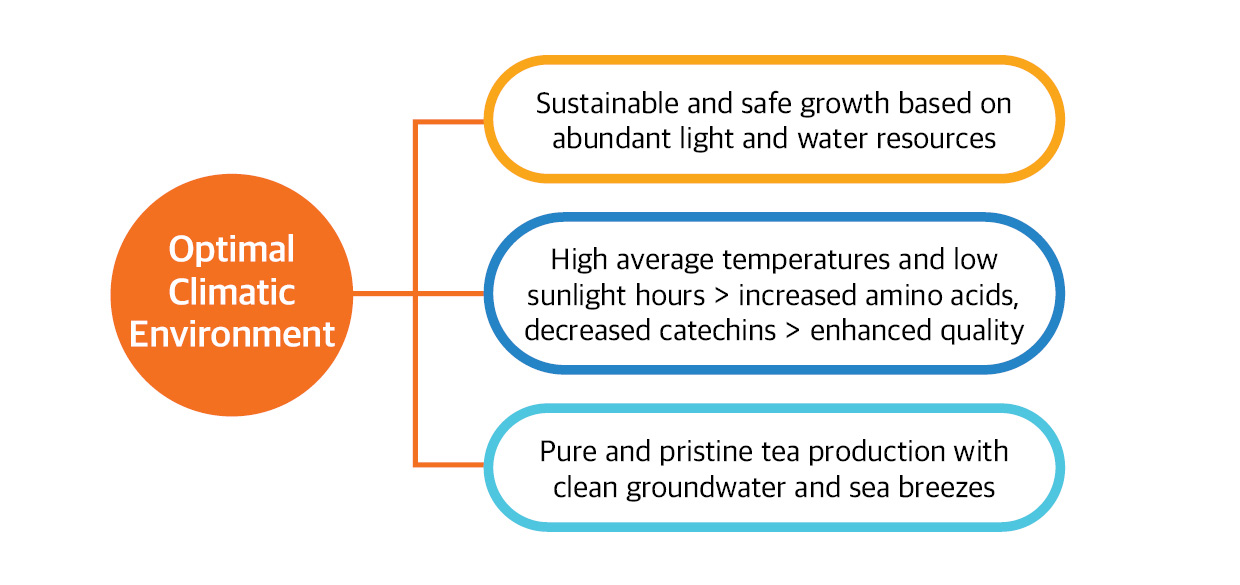
Q You leverage science and technology to cultivate tea using various farming methods.
At OSULLOC Farm, we manage extensive tea fields covering approximately 3,305,785 square meters (1 million pyeong) through organic cultivation. Cultivating a single crop over such vast areas organically requires the assistance of various scientific technologies. Tea cultivated at OSULLOC Farm guarantees consistent quality. During harvest, we employ near-infrared spectroscopy to analyze the components of tea leaves, such as amino acids, caffeine, and catechins. We harvest the leaves only when the targeted component levels reach their goals. Our organic farming methods for tea are scientifically executed. For example, if pests proliferate, we prune the tea tree branches to remove the leaves that serve as pests' food. This process allows the tea buds to regrow after the pest population decreases. Additionally, we develop processing techniques that leverage the characteristics of various tea varieties and analyze the diverse functions of tea accordingly. We use different fermentation processes to expand our product range and introduce fermented teas tailored to Jeju's geographical features and Korean preferences. We also collect genetic resources from rare tea trees to secure resources and predict consumer demands for planning and developing diverse product materials.
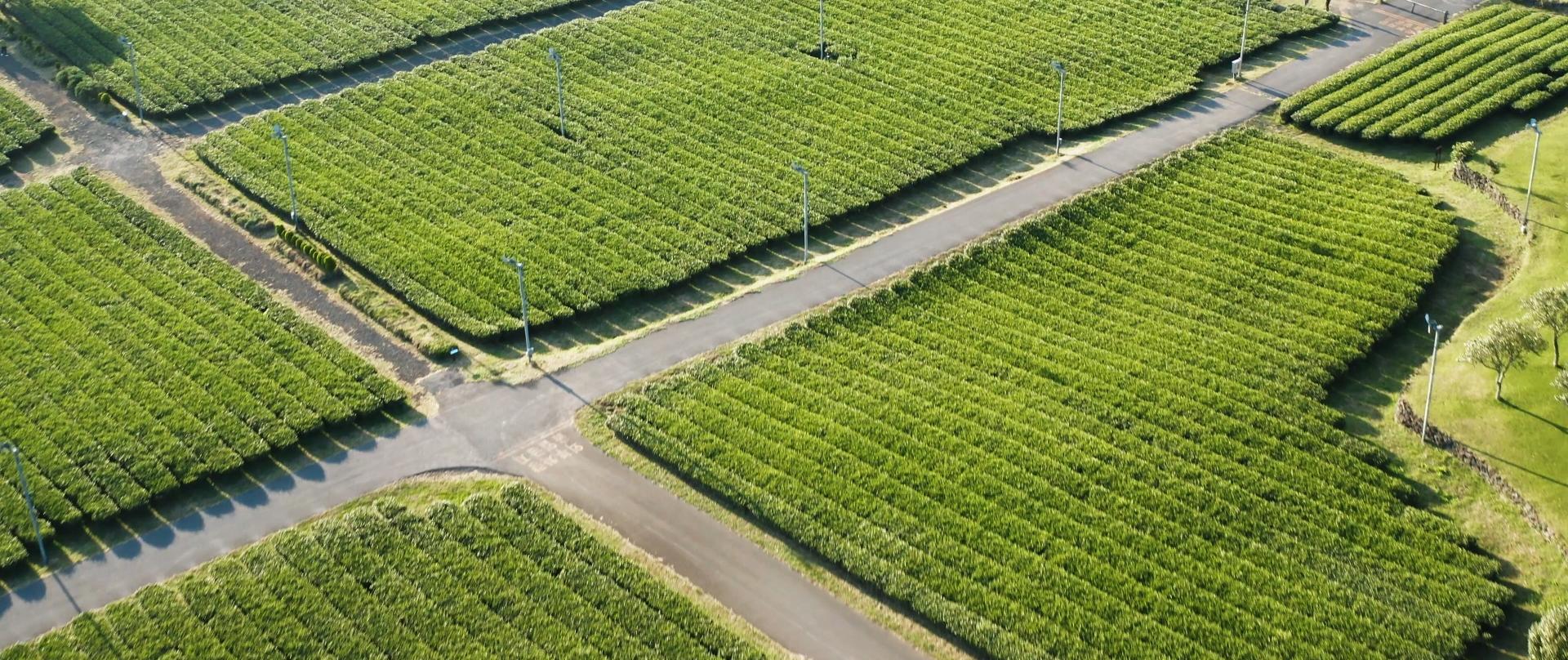
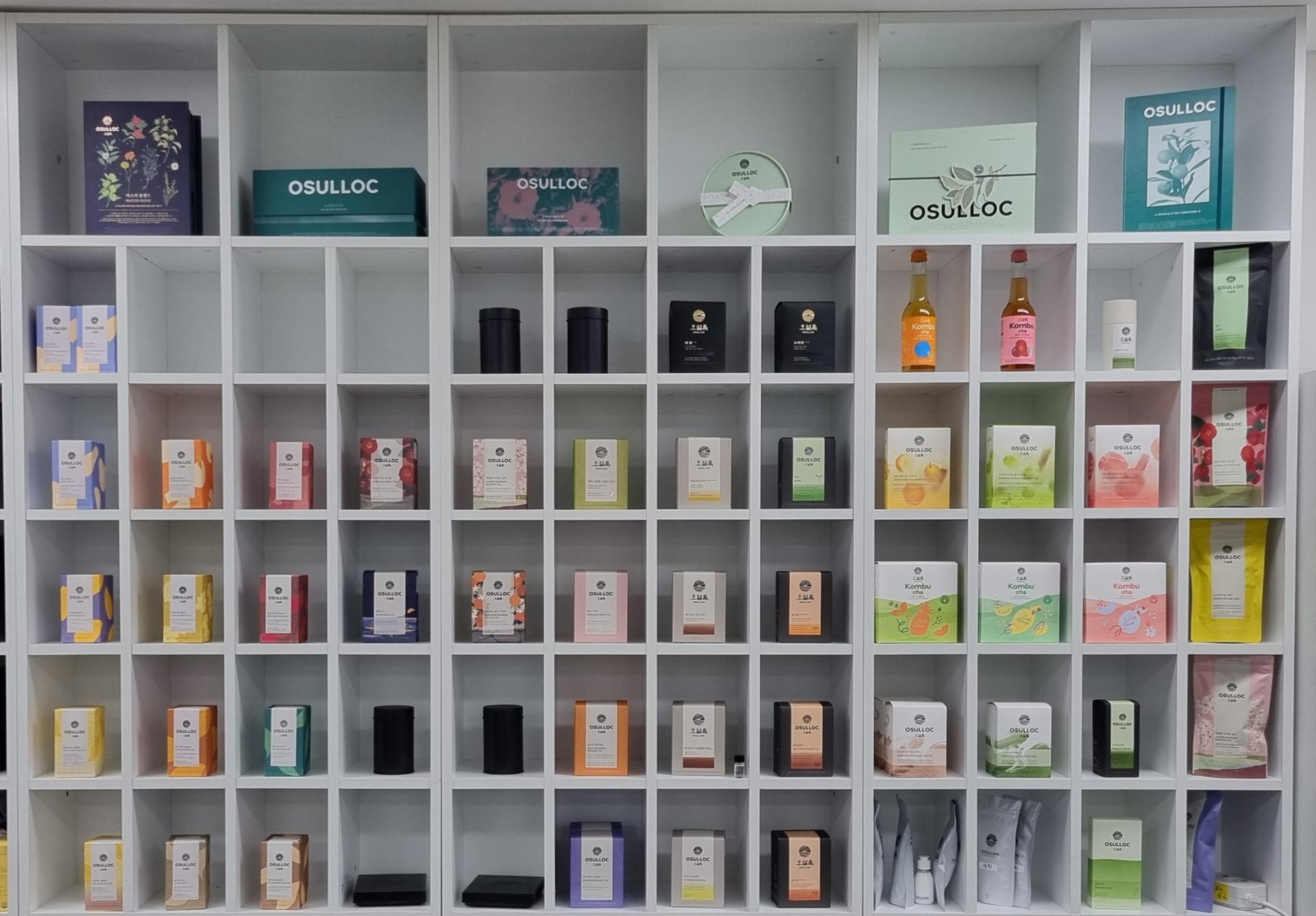
Q In addition to green tea, you produce various products utilizing ingredients from Jeju.
Among OSULLOC's products, the most popular is "Jeju Tangerine Tea." It is a blended tea with tangerines harvested from Jeju's organic tangerine fields. We also collaborate with local farmers to use camellia petals and rape flower petals as raw materials for blended teas.
|
A Tea Company Expanding from Jeju to the World |
Q You have achieved significant results in world-renowned tea contests. Are you considering overseas expansion, targeting countries like Japan, the United States, and Europe?
There are several global tea evaluation competitions where the world's finest teas compete in quality. Among them, the most prestigious and largest competitions are the World Tea Contest in Japan and the World Tea Championship in the United States. OSULLOC has won first place in such competitions, gaining global recognition for quality and increasing its brand awareness. For overseas expansion, we are also preparing to obtain USDA organic certification, vegan certification, non-GMO certification, and others.
Q Do you have plans and goals for future business expansion?
It is widely recognized that OSULLOC is Korea's premier tea brand. In the short term, we aim to stabilize the newly established OSULLOC Farm Tea Factory. In the long term, we aspire to chart the direction of OSULLOC as a global brand and transform the OSULLOC Tea Factory into a global tea production hub.
